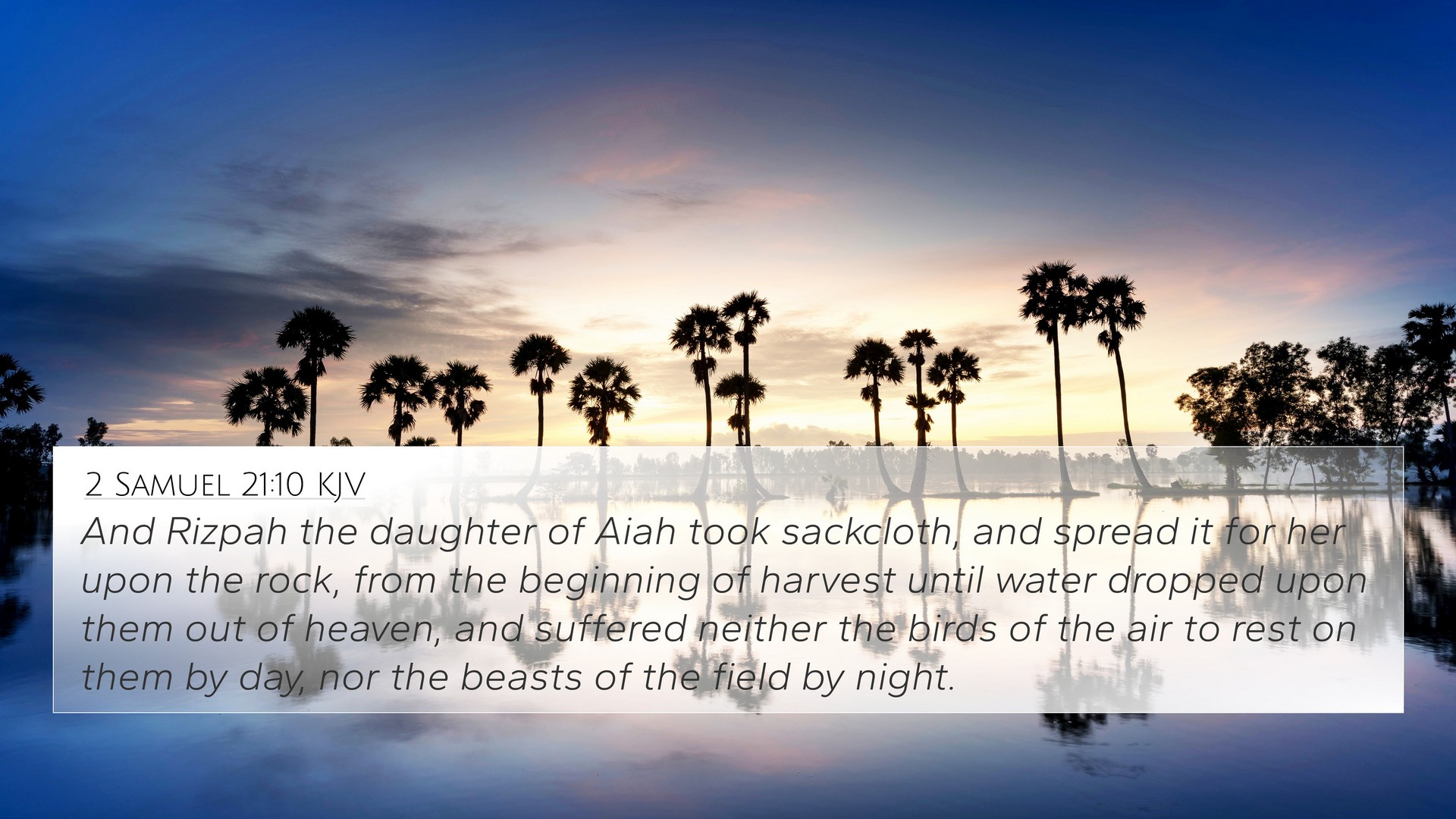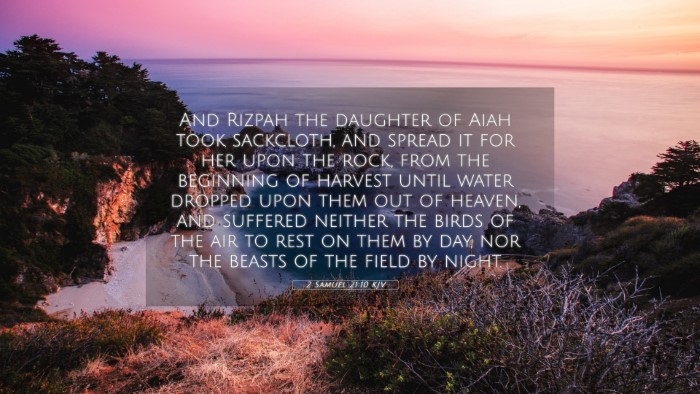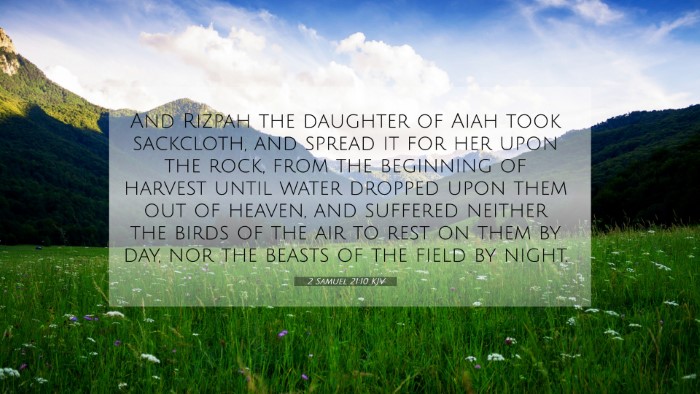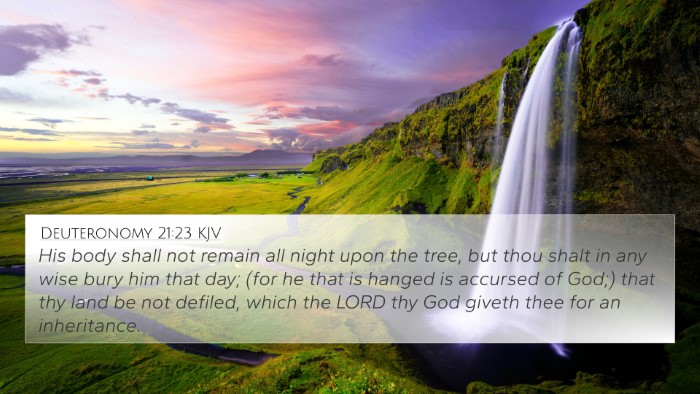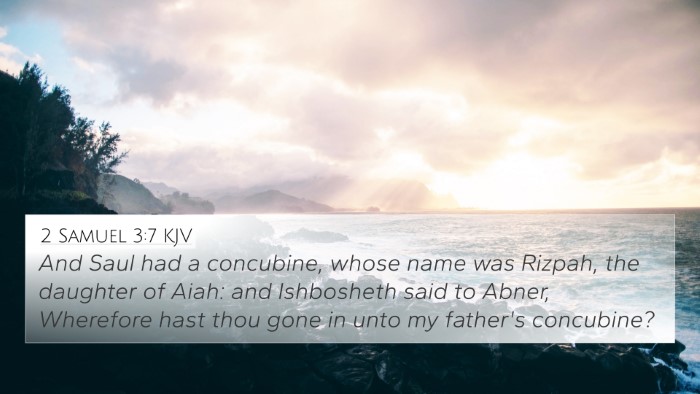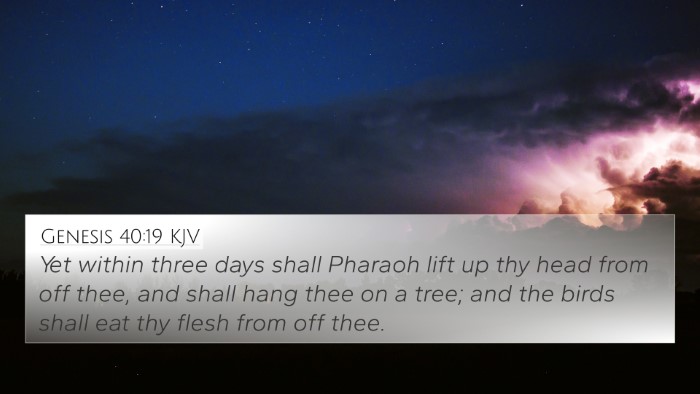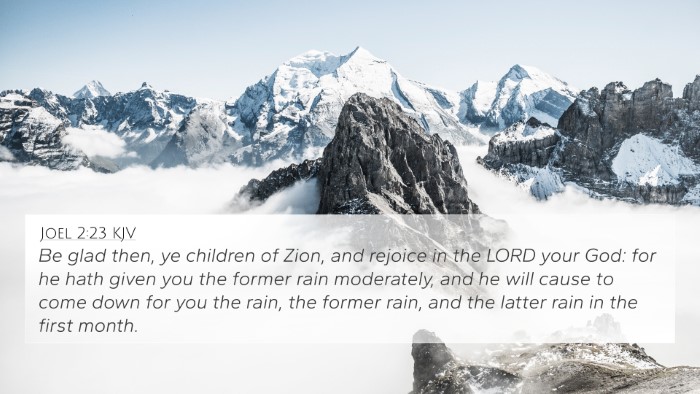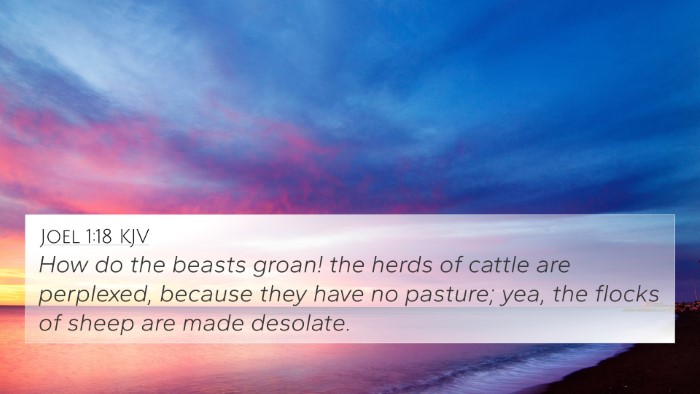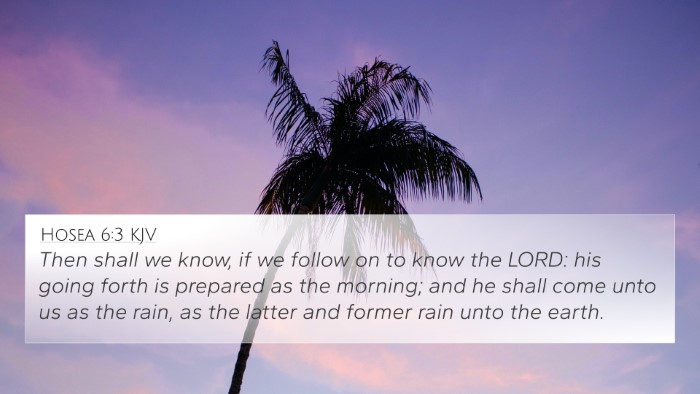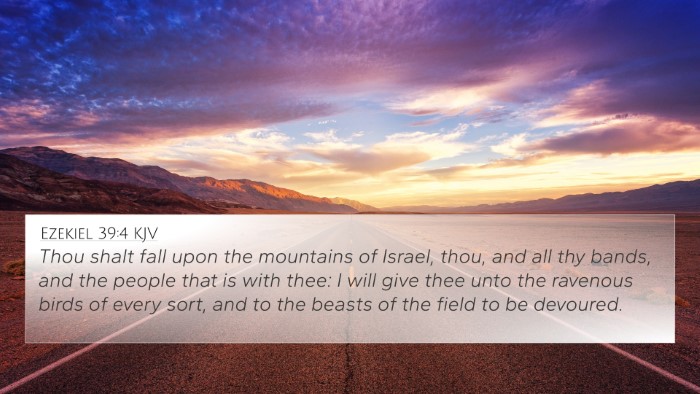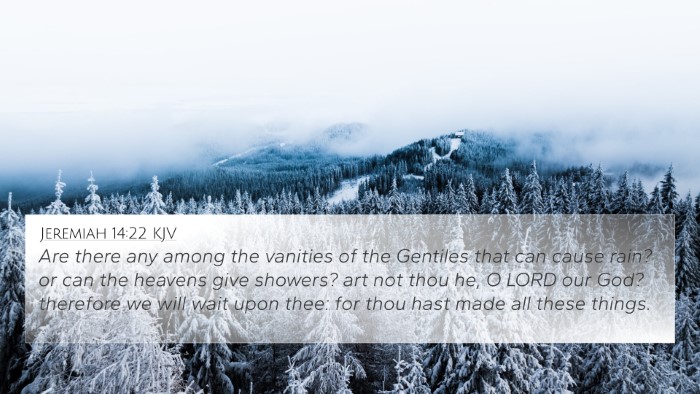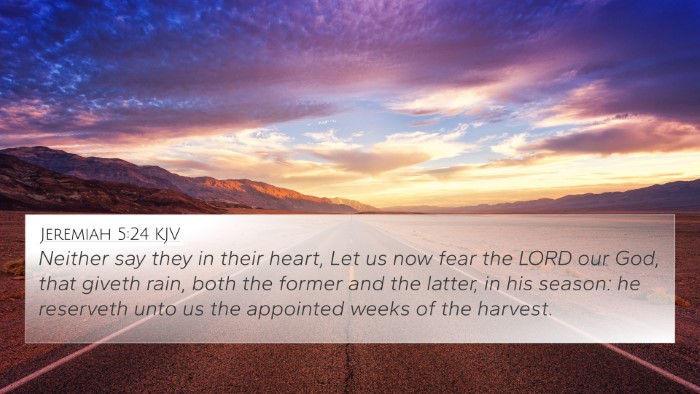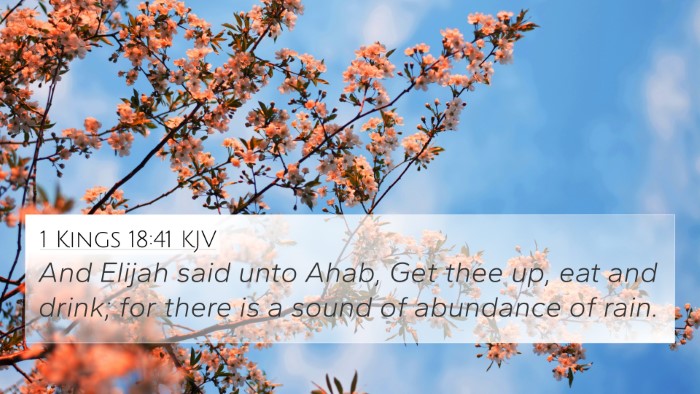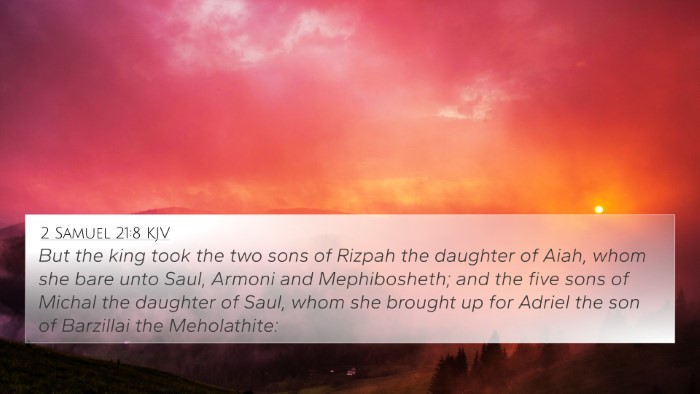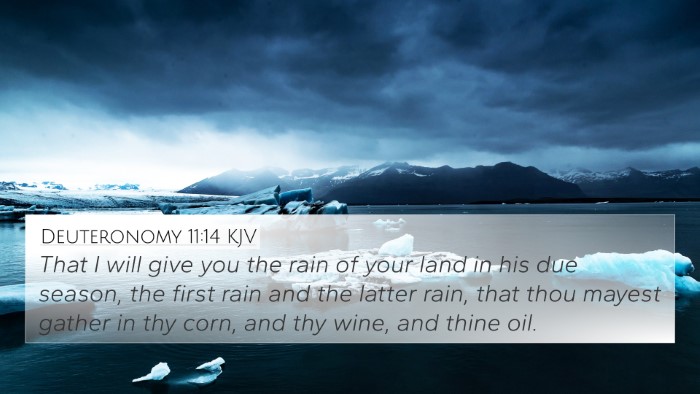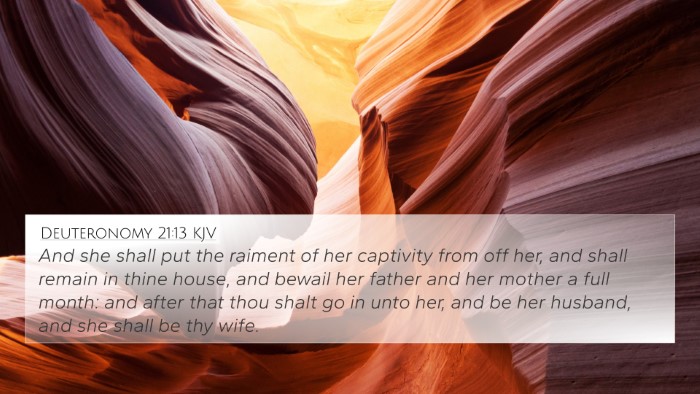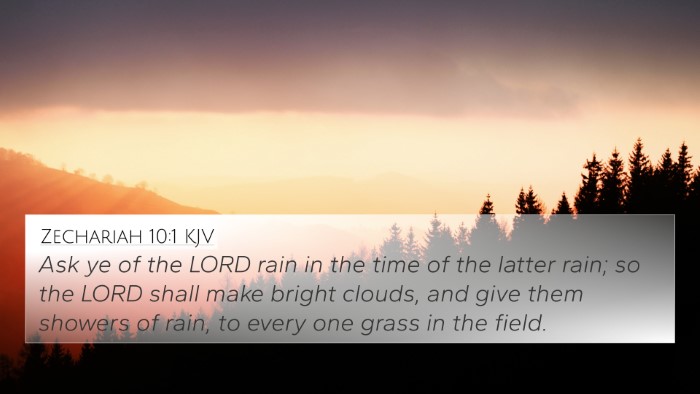Understanding 2 Samuel 21:10
Verse: "And Rizpah the daughter of Aiah took sackcloth, and spread it for her upon the rock, from the beginning of harvest until water dropped upon them out of heaven, and suffered neither the birds of the air to rest on them by day, nor the beasts of the field by night." (2 Samuel 21:10)
Summary: This verse portrays the deep sorrow and unwavering resolve of Rizpah, who became a symbol of loyalty and grief. In the face of tragedy, she protects the bodies of her slain sons from desecration, demonstrating her love and dedication, and serving as a poignant reminder of the human spirit's resilience.
Commentary Insights
-
Matthew Henry:
Henry emphasizes Rizpah's remarkable act of mourning and her symbolic nature as a devoted mother. Her choice to use sackcloth signifies deep mourning, and he highlights the significance of her actions in the context of justice and familial love amidst the brutality of war.
-
Albert Barnes:
Barnes discusses the cultural implications of Rizpah's actions, noting the importance of proper burial rites and the dishonor that could arise from neglecting the dead. He reflects on her courage as she stood vigil to protect her sons’ remains from being ravaged, stressing the need for respect for the deceased.
-
Adam Clarke:
Clarke views Rizpah's vigil as a display of maternal devotion. He connects her actions with the biblical themes of loyalty and protection, suggesting that her mourning represents the grief and sacrifice associated with loss, particularly in the context of the tragedies that befall families during conflict.
Biblical Cross References
This verse connects with several themes within the Bible, reinforcing concepts of grief, protection, and divine justice:
- 2 Samuel 3:31: David’s mourning for Abner highlights the weight of loss and the need for honor in death.
- Matthew 5:4: “Blessed are those who mourn, for they shall be comforted,” reflecting on the promise of consolation.
- 1 Kings 14:13: The lamentation of those due to loss serves to underscore the abiding grief experienced by families.
- John 11:35: Jesus wept, representing deep empathy and the universality of mourning.
- Psalms 34:18: “The Lord is near to the brokenhearted,” emphasizing divine presence in times of sorrow.
- Psalms 79:2: Reflects on the desecration of the dead as a significant offense, linking to Rizpah's protective stance.
- Jeremiah 22:19: Connects to themes of dishonor in death and the importance of a worthy legacy.
Thematic Connections
Rizpah’s actions resonate with significant themes throughout the Bible, showcasing the intersectionality of motherhood, grief, justice, and resilience:
- Maternal Loyalty: The dedication seen in Rizpah is paralleled in other maternal figures throughout scripture such as Hannah (1 Samuel 1) and Mary the mother of Jesus (Luke 1).
- Grief and Mourning: The Bible is replete with examples of loss, where figures like Job exemplify profound mourning and eventual restoration (Job 42).
- The Honor of the Dead: Cultural practices surrounding burial and respect for the deceased can be seen in Deuteronomy 21:22-23, linking to a greater biblical narrative surrounding justice and morality.
Practical Applications
Reflecting on Rizpah's story offers important lessons:
- Understanding grief can be a process of resistance against dishonor.
- Emphasizing the importance of human dignity in times of loss.
- Recognizing the spiritual insights gained through suffering.
- Encouraging action and advocacy for justice in the face of tragedy.
Conclusion
2 Samuel 21:10 encapsulates a moment of profound sorrow and loyalty. Through the lens of biblical commentaries and cross-references, we can appreciate the rich tapestry of themes that this verse contributes to, especially regarding grief, justice, and the timeless nature of maternal love. Understanding these connections not only deepens our appreciation of the scripture but fosters a deeper engagement with the poignant narratives woven throughout the Bible.
Tools for Bible Cross-Referencing
For those interested in exploring connections between Bible verses more deeply, various resources are available, including:
- Bible concordance: Essential for finding specific verses and their occurrences throughout the text.
- Bible cross-reference guide: Offers structured connections between related scriptures.
- Cross-reference Bible study: Techniques for exploring how verses interact thematically.
In conclusion, 2 Samuel 21:10 serves as a rich passage for study, reflection, and understanding, birthing a dialogue of resilience and human dignity that resonates through biblical history.
